
Cahokia Mounds: Echoes of an Ancient Civilization
Cahokia Mounds State Historic Site is a captivating place that brings visitors back to the ancient civilization of the Mississippian people. This UNESCO World Heritage Site is located in Illinois, just a short drive from St. Louis, Missouri. It is home to the remains of the most sophisticated prehistoric native civilization north of Mexico. The site covers over 2,200 acres and includes around 80 mounds, although it is believed that there were originally over 120 mounds during its peak. One of the highlights of Cahokia Mounds is Monks Mound, the largest prehistoric earthwork in the Americas. From the top of this massive structure, visitors can enjoy a panoramic view of the surrounding landscape. The site also includes the Woodhenge, a circular arrangement of wooden posts that ancient Cahokians used for astronomical observations. The Interpretive Center at Cahokia Mounds offers exhibits, dioramas, and audiovisual programs that provide context and enrich the visitor experience. Cahokia Mounds is not only a place to learn about ancient history but also a serene location for a pleasant walk or a family outing. The trails that wind through the mounds offer a peaceful retreat and a chance to reflect on the lives of the people who once inhabited this area. Whether you are a history buff, an archaeology enthusiast, or simply looking for a unique destination, Cahokia Mounds State Historic Site offers a fascinating glimpse into a world long past.
Local tips in Cahokia Mounds State Historic Site
- Visit early in the morning or late in the afternoon to avoid the heat and crowds.
- Wear comfortable walking shoes as the site is extensive and involves a lot of walking.
- Bring water and snacks, as there are limited facilities on-site.
- Check out the Interpretive Center first to gain a better understanding before exploring the mounds.
- Don't miss the view from the top of Monks Mound, it’s worth the climb!
- Consider visiting during the annual events like the Spring and Fall Equinox sunrise observations at Woodhenge.
Cahokia Mounds: Echoes of an Ancient Civilization
Cahokia Mounds State Historic Site is a captivating place that brings visitors back to the ancient civilization of the Mississippian people. This UNESCO World Heritage Site is located in Illinois, just a short drive from St. Louis, Missouri. It is home to the remains of the most sophisticated prehistoric native civilization north of Mexico. The site covers over 2,200 acres and includes around 80 mounds, although it is believed that there were originally over 120 mounds during its peak. One of the highlights of Cahokia Mounds is Monks Mound, the largest prehistoric earthwork in the Americas. From the top of this massive structure, visitors can enjoy a panoramic view of the surrounding landscape. The site also includes the Woodhenge, a circular arrangement of wooden posts that ancient Cahokians used for astronomical observations. The Interpretive Center at Cahokia Mounds offers exhibits, dioramas, and audiovisual programs that provide context and enrich the visitor experience. Cahokia Mounds is not only a place to learn about ancient history but also a serene location for a pleasant walk or a family outing. The trails that wind through the mounds offer a peaceful retreat and a chance to reflect on the lives of the people who once inhabited this area. Whether you are a history buff, an archaeology enthusiast, or simply looking for a unique destination, Cahokia Mounds State Historic Site offers a fascinating glimpse into a world long past.
When is the best time to go to Cahokia Mounds State Historic Site?
Iconic landmarks you can’t miss
Cahokia Mounds Museum Society
Explore the rich history of Cahokia Mounds, a UNESCO World Heritage Site showcasing ancient Native American civilization and impressive earthworks.
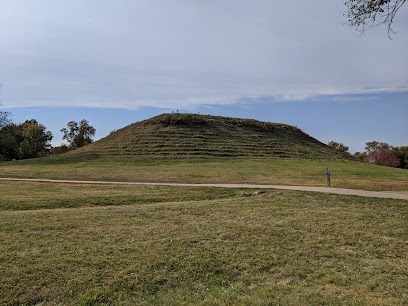
Woodhenge
Explore Woodhenge, the ancient solar calendar of Cahokia Mounds, where history merges with the beauty of nature in Illinois.
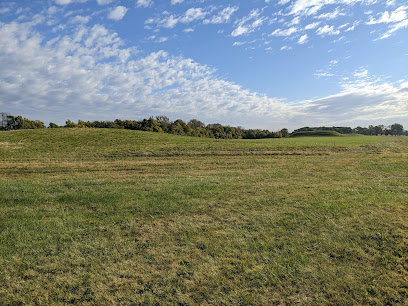
Monks Mound
Explore Monks Mound, a UNESCO World Heritage Site showcasing the ancient Cahokia civilization in Collinsville, Illinois, and experience breathtaking views.
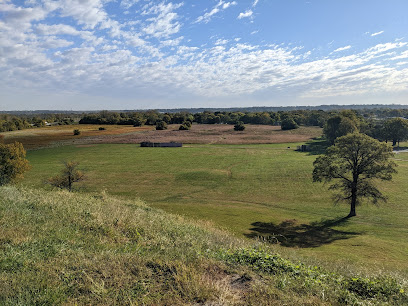
Cahokia mounds
Explore the ancient wonders of Cahokia Mounds, a UNESCO World Heritage site revealing the mysterious lives of North America's Mississippian culture.
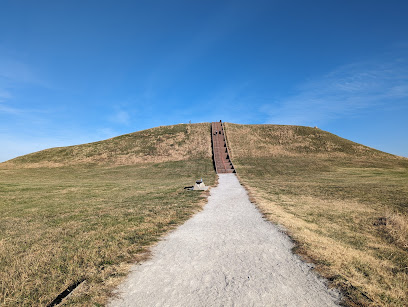
Cahokia Courthouse
Uncover the rich history of Cahokia at the historic courthouse museum, a must-visit attraction for history enthusiasts and curious travelers alike.
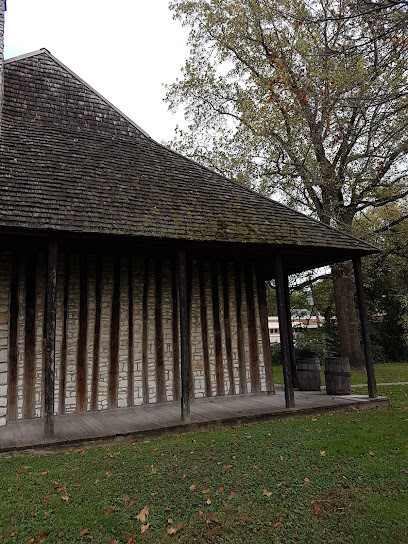
Mound 72
Discover Mound 72, a historical landmark in Collinsville, Illinois, where ancient Native American cultures thrived and left their mark on history.
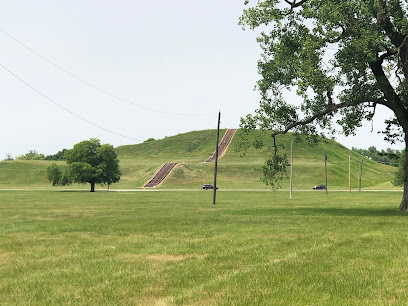
Cahokia
Uncover the ancient wonders of Cahokia, a UNESCO World Heritage Site, and explore the largest pre-Columbian city in North America.

Unmissable attractions to see
Enterprise Center
Experience the excitement of live sports and unforgettable concerts at the Enterprise Center, St. Louis' premier arena and entertainment venue.
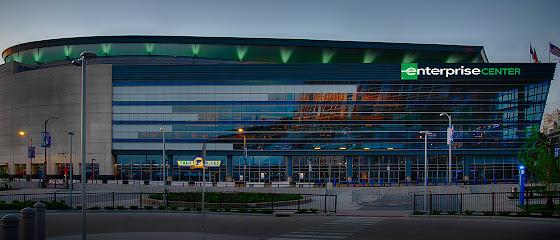
Kiener Plaza Park
Discover the beauty and tranquility of Kiener Plaza Park, a green haven in downtown St. Louis with stunning views of the Gateway Arch.
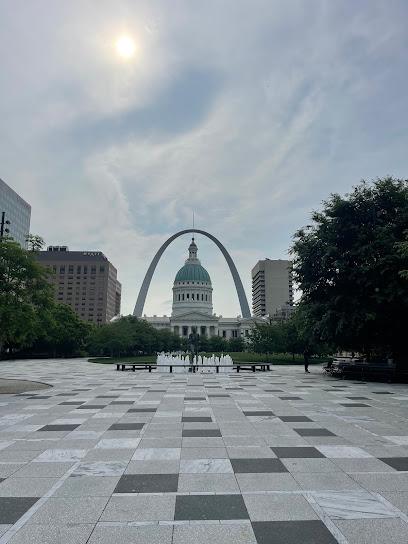
Cahokia Mounds Museum Society
Explore Cahokia Mounds: A UNESCO World Heritage site showcasing the incredible legacy of the ancient Mississippian culture through impressive earthworks and artifacts.
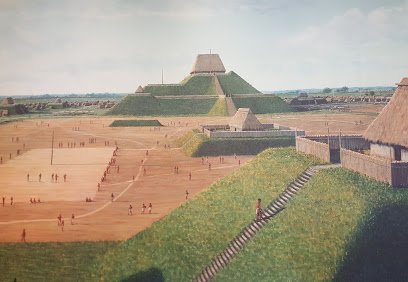
Collinsville Aqua Park
Experience the ultimate summer fun at Collinsville Aqua Park, Illinois' premier water destination with attractions for the whole family.
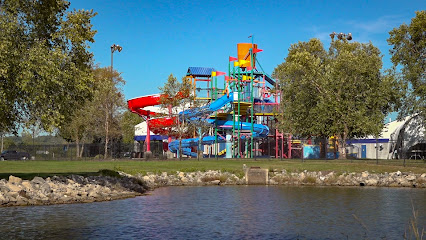
Worlds Largest Catsup Bottle
Discover the quirky charm of the World's Largest Catsup Bottle, a historical landmark and a delightful stop on your Route 66 journey.
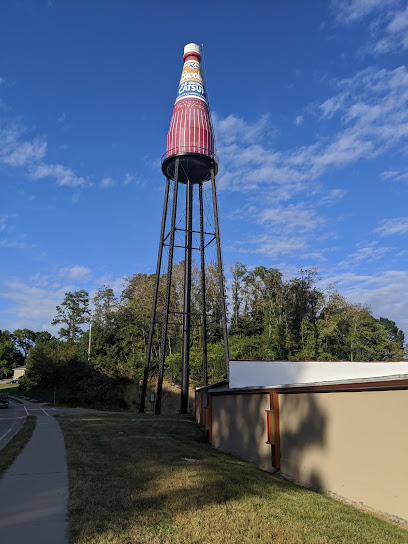
Woodhenge
Explore Woodhenge in Fairmont City, Illinois - an ancient solar calendar and historical landmark that connects you to America's prehistoric cultures.
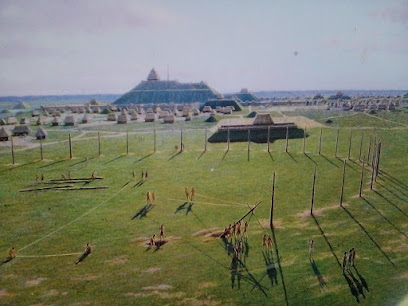
Monks Mound
Explore Monks Mound, a monumental historical landmark showcasing the ancient Cahokian civilization and its breathtaking earthworks.
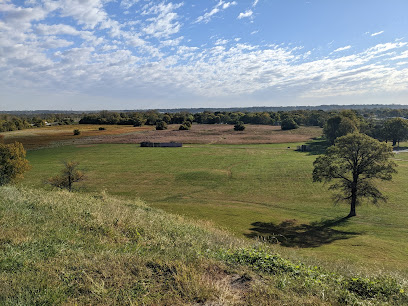
Collinsville Historical Museum
Uncover the fascinating history of Collinsville, Illinois at the Collinsville Historical Museum, where local stories and artifacts come to life.
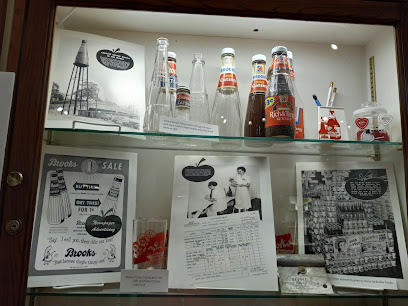
Navel of Mother Earth
Explore the Navel of Mother Earth in Fairmont City, Illinois: A captivating tourist attraction celebrating cultural significance and natural beauty.
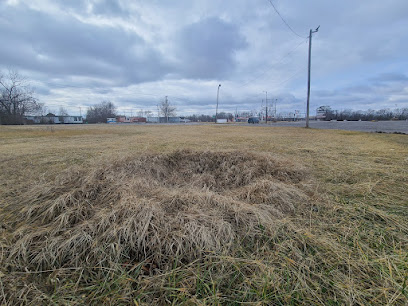
Cahokia mounds
Explore the ancient wonders of Cahokia Mounds, a historical landmark showcasing the rich legacy of the Mississippian culture and their monumental earthworks.
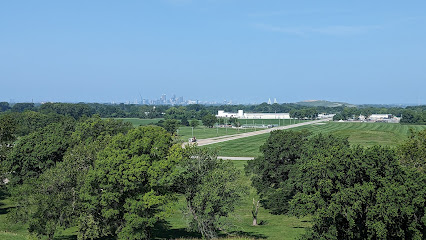
Jarrot Mansion State Historic Site
Discover the rich history and architectural beauty of Jarrot Mansion State Historic Site in Cahokia, Illinois, a must-visit for history enthusiasts.
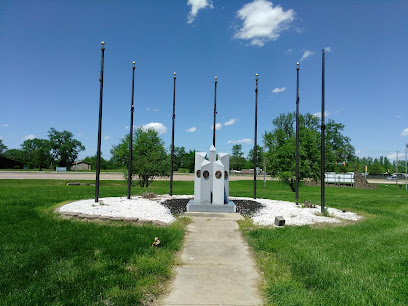
DD Collins House
Explore the rich history of Collinsville at the DD Collins House, a charming landmark showcasing the area’s heritage and architectural beauty.
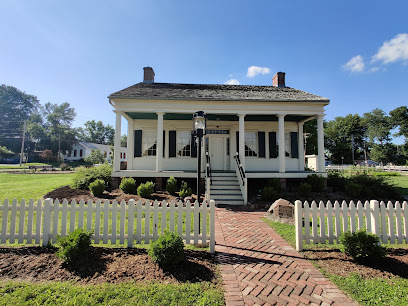
New Masonic Temple (St. Louis)
Explore St. Louis' New Masonic Temple, a captivating historical landmark reflecting the city's architectural heritage and Masonic traditions.
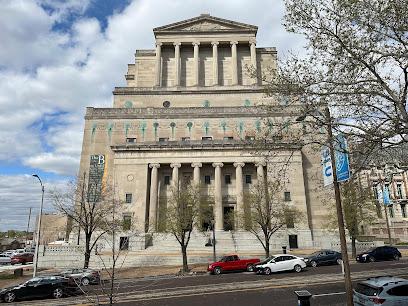
Route 66 Sign
Discover the Route 66 Sign in Collinsville, a symbol of America's iconic highway and a perfect spot for memorable travel photos.
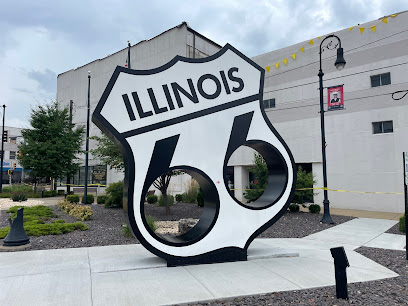
Cahokia
Discover the ancient civilization of Cahokia, a UNESCO World Heritage Site, with its monumental mounds and rich Native American history.

Essential places to dine
Colton's Steak House & Grill
Indulge in mouthwatering steaks and classic American dishes at Colton's Steak House & Grill in Collinsville.
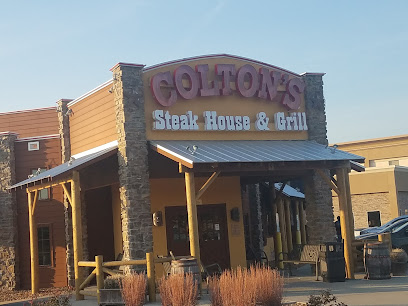
Waffle House
Experience the heart of American dining at Waffle House in Collinsville—open 24/7 for delicious breakfasts and comforting meals any time.
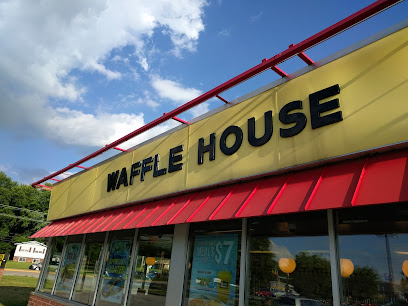
The Bar & Grill Formerly known as Steffi's
Experience authentic American grill cuisine at The Bar & Grill Formerly Known as Steffi's in Collinsville – where flavor meets fun!
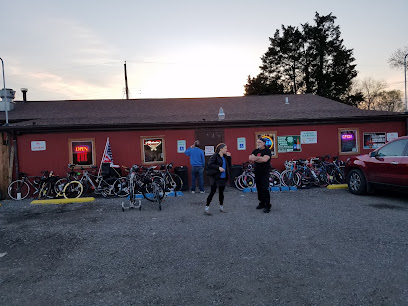
Markets, malls and hidden boutiques
Cahokia Mounds State Historic Site
Discover the ancient city of Cahokia Mounds, a UNESCO World Heritage site showcasing remarkable earthen structures and rich cultural history.
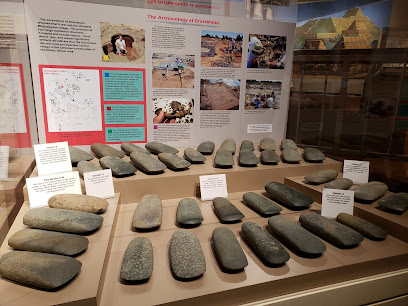
Eddie's
Experience the soulful flavors of East St. Louis at Eddie's, where hearty dishes and a welcoming atmosphere await every visitor.
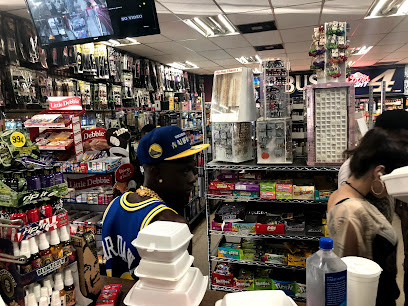
Tienda El Maguey
Experience authentic Mexican flavors and high-quality meat products at Tienda El Maguey, a culinary gem in Collinsville.
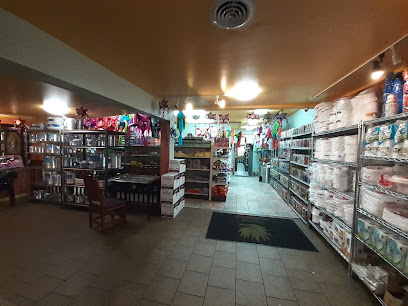
Gateway Market And Beauty Supply Store
Discover Gateway Market & Beauty Supply Store: Your Essential Stop for Groceries and Beauty Products in East St. Louis.
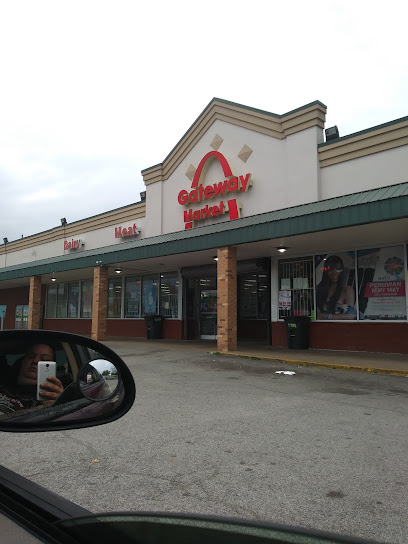
Gateway Market
Explore the vibrant flavors of East St. Louis at Gateway Market, a local supermarket offering fresh produce, local specialties, and more.
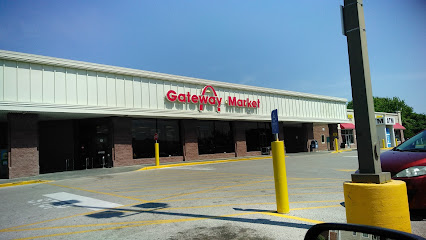
Rainbow Shops
Discover trendy women's clothing, beauty supplies, and accessories at Rainbow Shops in East St. Louis - your ultimate shopping destination!
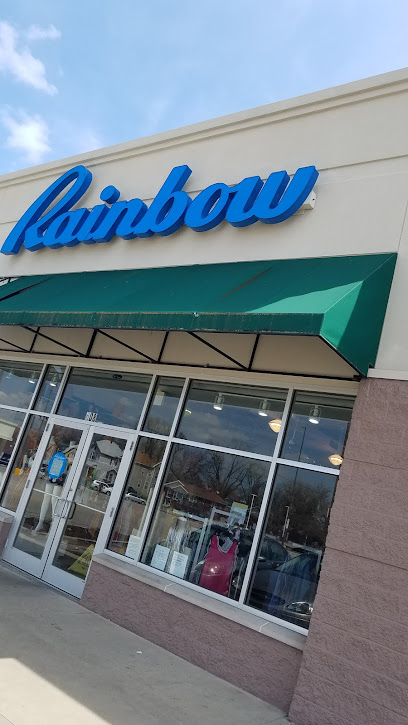
Personal Touch Boutique
Explore Personal Touch Boutique in East St. Louis for exceptional men's clothing, hats, and shoes, where style meets personalized service.
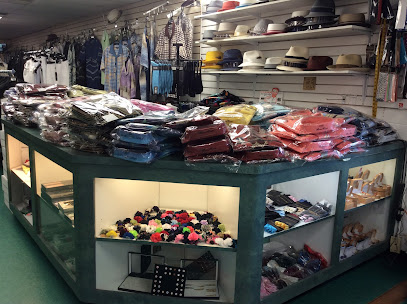
Rainbow Liquor Mart
Discover the vibrant selection at Rainbow Liquor Mart in East St. Louis, where local flavors and friendly service come together for an unforgettable shopping experience.
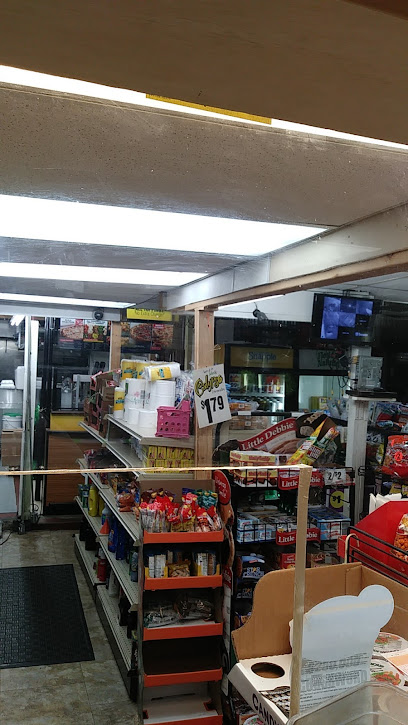
DTLR
Explore DTLR in East St. Louis for an unmatched selection of stylish shoes and clothing for the whole family, blending comfort and fashion effortlessly.
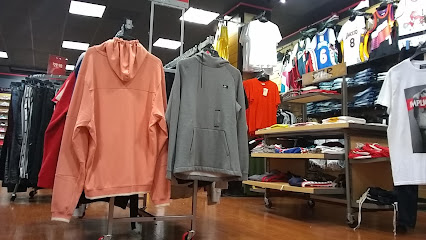
Nature's Pharmacy Smokeshop
Discover a world of tobacco and hookah at Nature's Pharmacy Smokeshop in Collinsville, IL - your ultimate destination for quality smoking supplies.
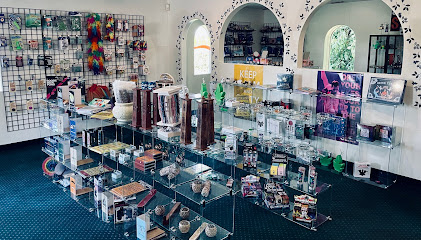
Stephanie's Spiritual Shop
Explore your spiritual path at Stephanie's Spiritual Shop, the ultimate destination for metaphysical supplies and enlightening experiences in Granite City.
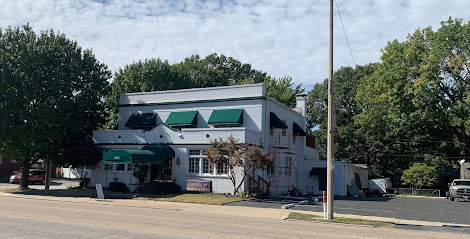
Sanchez & Sons Western Wear
Discover authentic Western apparel and unique cowboy gear at Sanchez & Sons Western Wear, your go-to destination in Collinsville, Illinois.
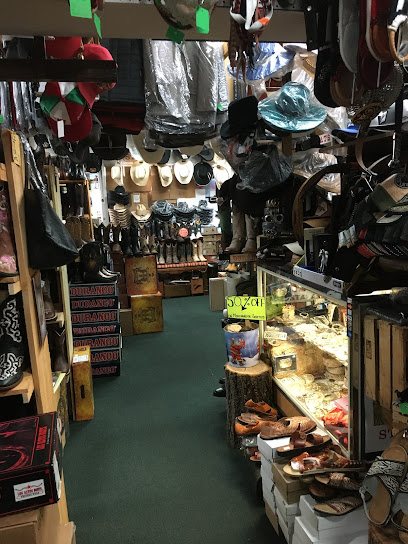
Woodhenge
Explore the ancient wonders of Woodhenge, a historical landmark revealing Cahokia's rich cultural and astronomical heritage in Illinois.
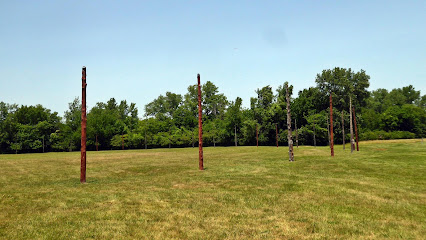
C & H
Discover a vibrant liquor store in East St. Louis, offering a wide selection of beverages perfect for every occasion and taste.
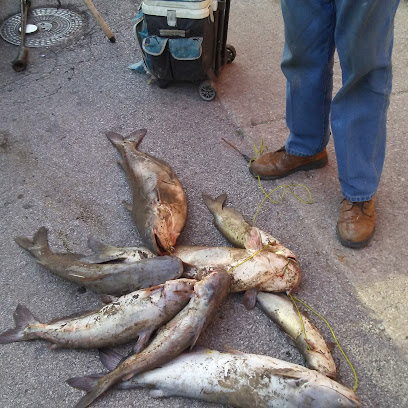
EXPRESS STOP
Discover the unique blend of dining and shopping at EXPRESS STOP in East St. Louis, where local flavors and convenience meet.
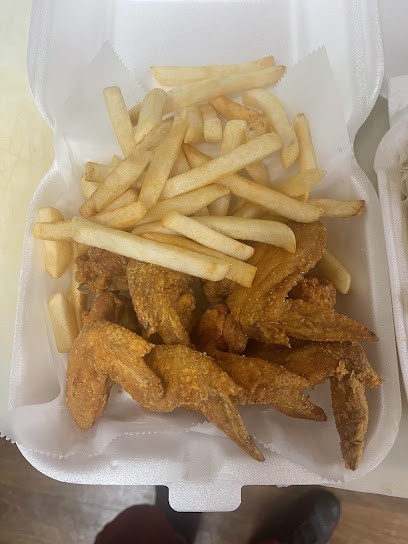
Essential bars & hidden hideouts
Joe-Man's Chicken Shack
Experience the best of East St. Louis at Joe-Man's Chicken Shack, where mouth-watering grilled chicken meets a vibrant atmosphere.
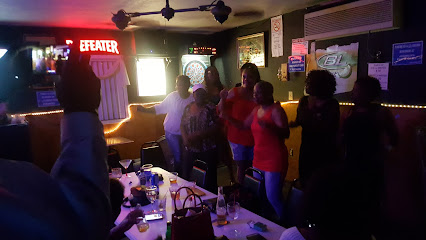
Woody'z Bar & Grill
Experience the warm ambiance and delicious grilled flavors at Woody'z Bar & Grill in Caseyville, where comfort food meets casual dining.
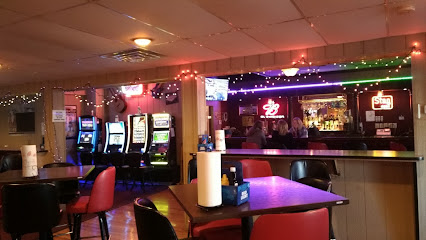
The Bar & Grill Formerly known as Steffi's
Discover the inviting atmosphere and scrumptious grilled fare at The Bar & Grill Formerly Known as Steffi's, a highlight in Collinsville, Illinois.
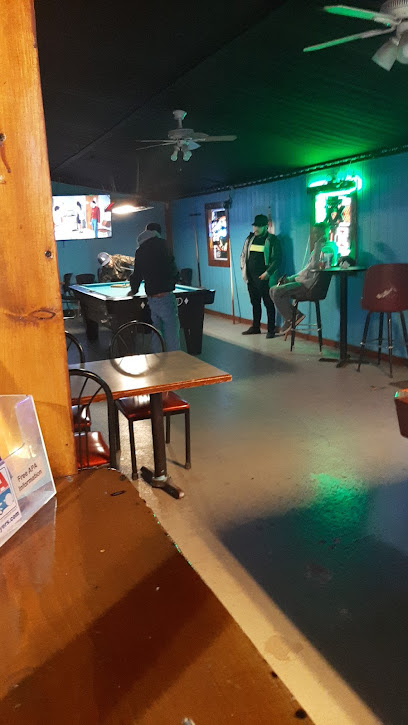
Unch's Bar & Grill
Experience the best of Cahokia at Unch's Bar & Grill, where delicious food meets lively entertainment in a welcoming atmosphere.
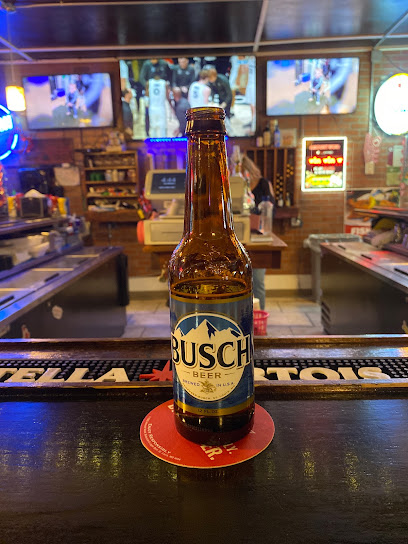
L.C.'s Pub
Experience the vibrant atmosphere of L.C.'s Pub in Caseyville, where delicious grilled dishes and sports come together for an unforgettable night out.
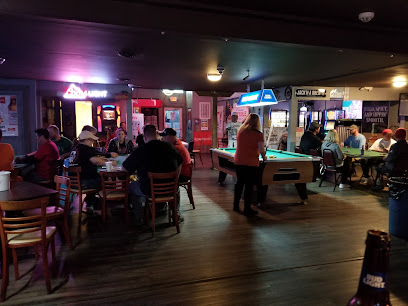
Olde Bridge Inn
Olde Bridge Inn in Caseyville offers a charming bar experience with great drinks and a welcoming atmosphere for tourists and locals alike.
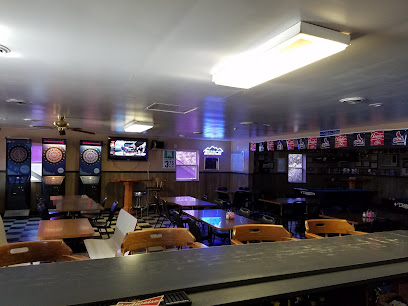
Koke's
Experience the vibrant flavors of Mexico at Koke's, a must-visit Mexican restaurant in East St. Louis offering authentic cuisine in a lively atmosphere.
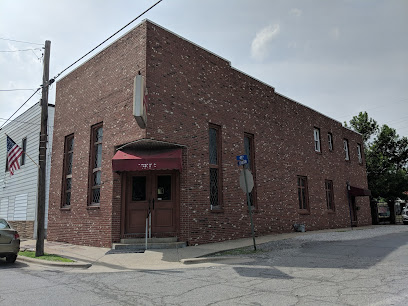
Goodfellas
Experience the flavors of East St. Louis at Goodfellas, where great food and a vibrant atmosphere come together for an unforgettable dining experience.
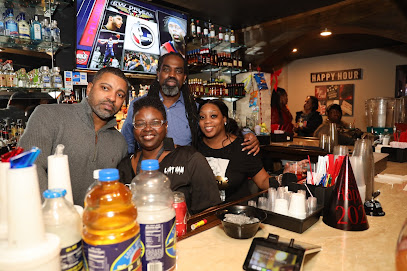
Dablitz Sports Bar and Grill
Experience the vibrant culinary and entertainment scene at Dablitz Sports Bar and Grill in East St. Louis, where delicious food meets lively atmosphere.
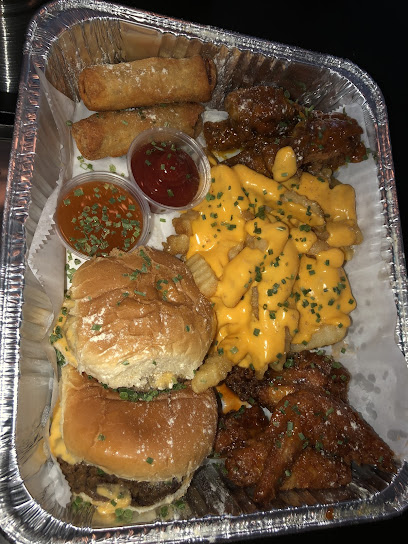
Perigen Tavern
Experience the vibrant nightlife at Perigen Tavern in Madison, Illinois, where friendly vibes and great drinks come together for an unforgettable evening.
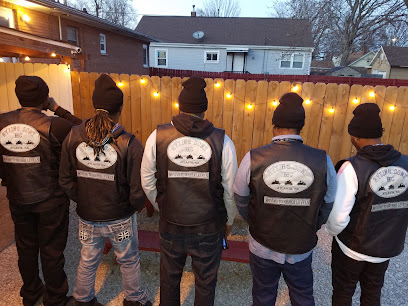
Spanky's Lounge
Discover Spanky's Lounge: East St. Louis' vibrant bar offering craft drinks and a lively atmosphere for an unforgettable night out.
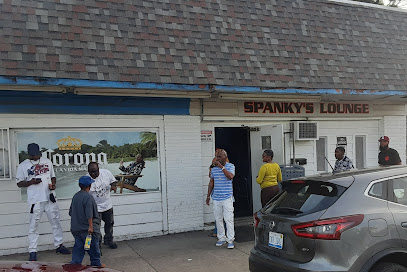
Jack's Place
Discover the local charm of Jack's Place, a cozy bar in Caseyville, IL, known for its friendly atmosphere and delicious drinks.
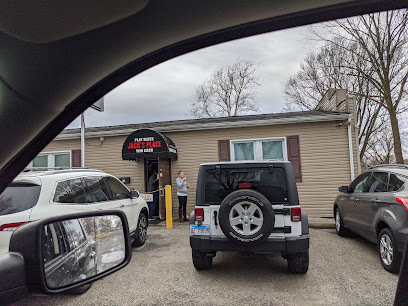
Butch's Bar & Grill
Experience the best of Cahokia at Butch's Bar & Grill, where hearty meals and a lively atmosphere await every visitor.
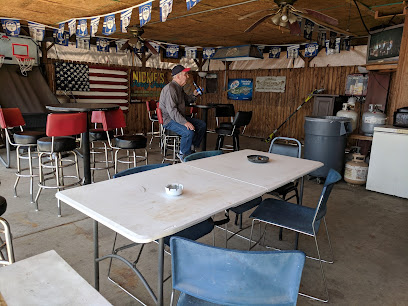
BB’S Sports Bar and Grill
Discover the ultimate sports bar experience at BB’S Sports Bar and Grill, where great food and live sports unite in Centreville, Illinois.
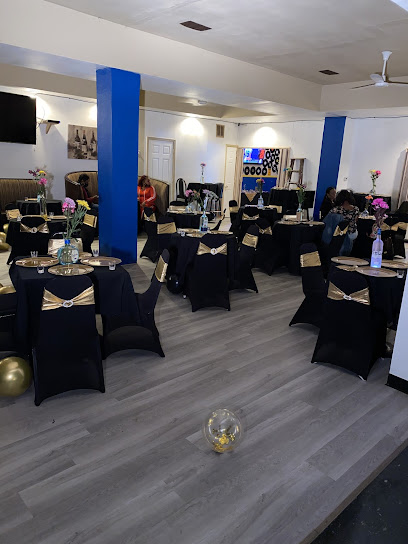
Kramdens Bar & Grill
Discover Kramdens Bar & Grill in Madison, Illinois, where delicious grilled flavors meet a vibrant atmosphere perfect for all diners.
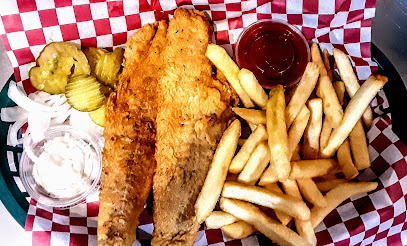
Local Phrases about Cahokia Mounds State Historic Site
-
- HelloHau
[how] - GoodbyeKwah-kwah
[kwah-kwah] - YesEeyo
[ee-yo] - NoNee
[nee] - Please/You're welcomeMiyo
[mee-yo] - Thank youEeh-see
[ee-see] - Excuse me/SorryKwee-seet
[kwee-seet] - How are you?Tee-ka-kwee?
[tee-ka-kwee] - Fine. And you?Tee-wah. Noo shay?
[tee-wah. noo shay] - Do you speak English?Wee-see tah-ka English?
[wee-see tah-ka English] - I don't understandKwah-kee tah-ka
[kwah-kee tah-ka]
- HelloHau
-
- I'd like to see the menu, pleaseMiyo-wee-see tah-ka menu, hau
[mee-yo-wee-see tah-ka menu, how] - I don't eat meatKwah-kee tah-ka meat
[kwah-kee tah-ka meat] - Cheers!Oo-sa
[oo-sa] - I would like to pay, pleaseMiyo-wee-see tah-ka pay, hau
[mee-yo-wee-see tah-ka pay, how]
- I'd like to see the menu, pleaseMiyo-wee-see tah-ka menu, hau
-
- Help!Oo-ho
[oo-ho] - Go away!Tee-kwee-sa
[tee-kwee-sa] - Call the Police!Wee-see tah-ka Police!
[wee-see tah-ka Police] - Call a doctor!Wee-see tah-ka doctor!
[wee-see tah-ka doctor] - I'm lostKwah-kee tah-ka wah-kwah
[kwah-kee tah-ka wah-kwah] - I'm illKwah-kee tah-ka kwee-see
[kwah-kee tah-ka kwee-see]
- Help!Oo-ho
-
- I'd like to buy...Miyo-wee-see tah-ka buy...
[mee-yo-wee-see tah-ka buy...] - I'm just lookingKwah-kee tah-ka kwee-see
[kwah-kee tah-ka kwee-see] - How much is it?Tee-kwee tah-ka
[tee-kwee tah-ka] - That's too expensiveTah-kwee-sa wah-kwah
[tah-kwee-sa wah-kwah] - Can you lower the price?Wee-see tah-ka-te-te
[wee-see tah-ka-te-te]
- I'd like to buy...Miyo-wee-see tah-ka buy...
-
- What time is it?Tee-kwee tah-ka time?
[tee-kwee tah-ka time] - It's one o'clockTah-kwee-sa wah-kah
[tah-kwee-sa wah-kah] - Half past (10)Kwee-see tah-ka tah-kwee
[kwee-see tah-ka tah-kwee] - MorningWah-kwee
[wah-kwee] - AfternoonTah-kwee
[tah-kwee] - EveningOo-sa
[oo-sa] - YesterdayWah-kah-tee
[wah-kah-tee] - TodayWah-kah
[wah-kah] - TomorrowWee-see
[wee-see] - 1Wah-kah
[wah-kah] - 2Tah-kwee
[tah-kwee] - 3Tee-kah
[tee-kah] - 4Tah-kah
[tah-kah] - 5Wah-kwee
[wah-kwee] - 6Tah-wah
[tah-wah] - 7Tee-sa
[tee-sa] - 8Wah-see
[wah-see] - 9Tah-sa
[tah-sa] - 10Wah-ka
[wah-ka]
- What time is it?Tee-kwee tah-ka time?
-
- Where's a/the...?Tah-kwee tah-ka...?
[tah-kwee tah-ka] - What's the address?Tee-kwee tah-ka address?
[tee-kwee tah-ka address] - Can you show me (on the map)?Wee-see tah-ka kwee-see (on the map)?
[wee-see tah-ka kwee-see] - When's the next (bus)?Tee-kwee tah-ka next (bus)?
[tee-kwee tah-ka next] - A ticket (to ....)Tah-kwee-sa (to ....)
[tah-kwee-sa]
- Where's a/the...?Tah-kwee tah-ka...?
History of Cahokia Mounds State Historic Site
-
Cahokia Mounds State Historic Site, located in present-day Illinois, was the largest urban center of the Mississippian culture, thriving from approximately 700 AD to 1400 AD. At its peak, Cahokia was home to an estimated 20,000 people, making it one of the most significant pre-Columbian settlements north of Mexico. The city's strategic location near the confluence of the Mississippi, Missouri, and Illinois rivers facilitated trade and cultural exchange, contributing to its rapid growth and prosperity.
-
The centerpiece of Cahokia is Monks Mound, the largest prehistoric earthen structure in the Americas. Standing at 100 feet tall, with a base covering 14 acres, Monks Mound was likely the political and religious hub of the city. The mound is named after French Trappist monks who lived nearby in the early 19th century. Archaeological evidence suggests that a massive wooden temple or elite residence once stood atop Monks Mound, highlighting the mound's significance in Cahokian society.
-
Woodhenge is a series of large timber circles used by the Cahokians for calendrical and astronomical purposes. These structures, located to the west of Monks Mound, aligned with the solstices and equinoxes, marking important dates in the agricultural and ceremonial calendar. The construction and use of Woodhenge demonstrate the advanced astronomical knowledge and organizational skills of the Cahokian people.
-
The Grand Plaza, situated at the heart of Cahokia, was a vast open space used for public gatherings, ceremonies, and markets. Archaeological excavations have revealed evidence of large-scale feasting and social activities in this area, indicating its central role in the community's social and economic life. The Grand Plaza was surrounded by key structures, including Monks Mound, smaller platform mounds, and residential areas for the elite.
-
Mound 72 is one of the most significant burial mounds at Cahokia, providing invaluable insights into the social hierarchy and spiritual beliefs of the Cahokian people. Excavations uncovered the remains of an elite male, known as the Birdman, buried on a bed of shell beads arranged in the shape of a falcon. This high-status burial was accompanied by the remains of other individuals, some of whom were likely sacrificial victims, underscoring the complex and often brutal nature of Cahokian society.
-
By the mid-13th century, Cahokia began to experience a decline, marked by environmental stress, social unrest, and resource depletion. The population gradually dwindled, and by 1400 AD, the city was largely abandoned. The reasons for Cahokia's decline remain a topic of scholarly debate, with theories ranging from climate change to warfare and political collapse. Despite its eventual abandonment, Cahokia's legacy endures, offering a glimpse into the rich cultural and historical tapestry of pre-Columbian North America.
-
The significance of Cahokia was recognized in the 19th century, leading to early efforts to study and preserve the site. In 1964, Cahokia Mounds was designated a National Historic Landmark, and in 1982, it was recognized as a UNESCO World Heritage Site. Today, Cahokia Mounds State Historic Site is a protected area, featuring a museum and interpretive center that educates visitors about the history, culture, and achievements of the Cahokian people. Ongoing archaeological research continues to uncover new insights, ensuring that Cahokia's story remains a vibrant part of our understanding of ancient North America.
Cahokia Mounds State Historic Site Essentials
-
Cahokia Mounds State Historic Site is located in Collinsville, Illinois, just a short drive from St. Louis, Missouri. The closest major airport is St. Louis Lambert International Airport (STL), approximately 20 miles away. From the airport, you can rent a car, take a taxi, or use ride-sharing services to reach the site. If you're driving, use I-55/I-70 and take Exit 6 to Collinsville Road, following signs for Cahokia Mounds.
-
The easiest way to get around Cahokia Mounds is by car. The site has ample parking. Alternatively, you can use taxi services or ride-sharing apps like Uber and Lyft. Public transportation options are limited, but Madison County Transit (MCT) buses do have routes that stop near the site. It’s worth checking the MCT schedule for the latest routes and times.
-
The official currency is the US Dollar (USD). Credit and debit cards are widely accepted at most facilities within the site, including the Interpretive Center. However, it's advisable to carry some cash for smaller purchases or in case card payment systems are down. There are ATMs available in nearby Collinsville if you need to withdraw cash.
-
Cahokia Mounds State Historic Site is generally safe for tourists. However, as with any travel destination, it's important to stay vigilant. Keep an eye on your belongings and avoid isolated areas after dark. While the site itself is secure, some neighborhoods in nearby East St. Louis have higher crime rates. It's best to stay in well-populated and well-lit areas.
-
In case of an emergency, dial 911 for immediate assistance. The nearest hospitals are in Collinsville and St. Louis. It’s advisable to have travel insurance that covers medical emergencies. The Cahokia Mounds Interpretive Center staff are also trained to handle minor first aid situations and can assist in contacting local medical facilities if needed.
-
Fashion: Do wear comfortable walking shoes and weather-appropriate clothing. Avoid high heels or flip-flops. Religion: Do be respectful of the site's historical and cultural significance. Public Transport: Do check bus schedules in advance if you plan to use public transportation. Greetings: Do greet people with a smile or a nod. Eating & Drinking: Do bring your own water and snacks, but don't leave any trash behind. Don’t eat or drink inside the Interpretive Center.
-
To experience Cahokia Mounds like a local, consider visiting early in the morning or late in the afternoon to avoid crowds and enjoy the site in relative solitude. Bring a picnic and enjoy it at one of the designated areas near the mounds. Engage with the Interpretive Center staff; they are knowledgeable and can provide insights that you won't find in guidebooks. Don’t miss the annual events like Archaeology Day, which offers hands-on activities and demonstrations.
Nearby Cities to Cahokia Mounds State Historic Site
-
Things To Do in St. Charles
-
Things To Do in Cape Girardeau
-
Things To Do in Hannibal
-
Things To Do in Decatur
-
Things To Do in Rolla
-
Things To Do in Jefferson City
-
Things To Do in Poplar Bluff
-
Things To Do in Paducah
-
Things To Do in Bloomington
-
Things To Do in Champaign
-
Things To Do in Evansville
-
Things To Do in Peoria
-
Things To Do in Maui
-
Things To Do in Terre Haute
-
Things To Do in Lake of the Ozarks








